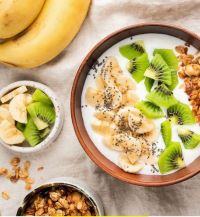“Quick Constipation Relief: Home Remedies”
Constipation can be an uncomfortable and frustrating issue to deal with. If you’re looking for quick and effective ways to find immediate constipation relief at home, you’ve come to the right place. In this article, we will explore various strategies to help you alleviate this problem without the need for medications or medical interventions.
What Is Constipation?
Before we dive into remedies, let’s understand what constipation is. Constipation is a condition in which you have difficulty passing stool or experience infrequent bowel movements. It can lead to discomfort, bloating, and even abdominal pain. Everyone experiences it from time to time, but chronic constipation can be a significant concern.
What causes Constipation?
Constipation can have various causes, and it often results from a combination of factors. Some common causes of constipation include:
- Low Dietary Fiber: A diet low in fiber can lead to constipation. Fiber adds bulk to stool, making it easier to pass. Insufficient intake of fruits, vegetables, whole grains, and legumes can contribute to this problem.
- Dehydration: Inadequate fluid intake can result in dry and hard stool, making it difficult to pass. Staying hydrated is crucial for maintaining regular bowel movements.
- Lack of Physical Activity: A sedentary lifestyle can slow down the natural contractions of the intestines, leading to constipation. Regular physical activity can help stimulate these muscles and promote healthy digestion.
- Stress: Stress and anxiety can affect the functioning of the digestive system, potentially causing constipation. Stress-reduction techniques can be beneficial in managing this issue.
- Medications: Some medications, such as certain pain relievers, antacids with aluminum or calcium, and certain antidepressants, can have constipation as a side effect.
- Medical Conditions: Certain medical conditions like irritable bowel syndrome (IBS), hypothyroidism, and diabetes can contribute to constipation. In these cases, addressing the underlying condition is crucial.
- Ignoring the Urge: Ignoring the natural urge to have a bowel movement can lead to constipation over time. It’s essential to listen to your body’s signals and respond promptly.
- Pregnancy: Hormonal changes and pressure on the intestines during pregnancy can result in constipation for many women.
- Age: Constipation is more common in older adults due to decreased muscle tone in the colon and slower transit time.
- Neurological Disorders: Conditions that affect the nervous system, such as multiple sclerosis or Parkinson’s disease, can impact the muscles responsible for bowel movements.
Remember It’s important to note that individual experiences with constipation may vary, and the causes can be different from person to person. Addressing constipation often involves dietary changes, increased hydration, regular exercise, and, in some cases, medical intervention or medication. If constipation is persistent or severe, consulting a healthcare professional is recommended to determine the underlying cause and appropriate treatment.
Suggestions: The Secret to Gut health
5 home remedies for constipation relief
Fiber-rich Foods: Include plenty of fiber in your diet by consuming foods like whole grains, fruits, vegetables, and legumes. Fiber helps soften the stool and promotes regular bowel movements.
Hydration: Drink an adequate amount of water throughout the day to prevent dehydration, which can lead to constipation. Staying hydrated keeps your stool soft and easier to pass.
Regular Exercise: Incorporate at least 30 minutes of physical activity into your daily routine. Exercise stimulates the muscles in your intestines, aiding in regular bowel movements.
Stress Reduction: Engage in stress-reduction techniques such as deep breathing, meditation, or yoga to improve your digestive health and reduce the impact of stress on constipation.
Natural Laxatives: Fruits like prunes and figs are known for their natural laxative properties. Including them in your diet can provide quick relief from constipation.
Summary, These home remedies can help you find relief from constipation and promote a healthier digestive system. However, if your condition persists or worsens, it’s essential to consult a healthcare professional for personalized guidance and solutions.
Foods that get rid of constipations
Fiber-rich Foods: Dietary fiber is essential for maintaining regular bowel movements. Include foods like whole grains (oats, whole wheat, barley), bran cereals, and brown rice in your diet. Fruits such as apples, pears, and berries, as well as vegetables like broccoli, carrots, and spinach, are also rich in fiber.
Prunes: Prunes, or dried plums, are renowned for their natural laxative properties. They contain both fiber and a natural sugar alcohol called sorbitol, which can help soften the stool and promote bowel movements.
Figs: Figs are another fruit rich in fiber and natural sugars that can act as a mild laxative. You can eat them fresh or dried.
Legumes: Beans, lentils, and chickpeas are excellent sources of fiber. Incorporate these legumes into your meals to support regular digestion.
Flaxseeds: Flaxseeds are high in fiber and can be added to cereals, yogurt, or smoothies to increase your fiber intake.
Chia Seeds: Chia seeds absorb water and form a gel-like substance in your intestines, which can aid in softening the stool and promoting bowel movements.
Kiwi: Kiwi is a fruit rich in both fiber and natural enzymes that can help with digestion. Eating kiwi regularly can be beneficial for relieving constipation.
Water: Staying hydrated is crucial for preventing and relieving constipation. Drinking enough water throughout the day helps keep your stool soft and easier to pass.
Oatmeal: Oatmeal is a good source of soluble fiber, which can add bulk to your stool and facilitate its movement through the intestines.
Yogurt with Probiotics: Some types of yogurt contain probiotics, which are beneficial bacteria that can promote gut health. A healthy gut can aid in regular bowel movements.
Note: It’s essential to gradually increase your fiber intake to prevent bloating and discomfort. Also, maintaining a balanced diet with a variety of these foods can contribute to overall digestive health. If constipation persists or worsens, it’s advisable to consult with a healthcare professional for a personalized approach to managing your condition.
Food to avoid
Processed Foods: Highly processed foods, such as fast food, frozen meals, and packaged snacks, are often low in fiber and can slow down digestion.
Red Meat: Red meats like beef and lamb are typically low in fiber and can be harder to digest. Limit your intake and opt for lean cuts.
Dairy Products: Some people may be sensitive to dairy, and dairy products like milk and cheese can cause constipation in these individuals. Consider dairy alternatives like lactose-free milk or almond milk.
Fried and Fatty Foods: Fried foods, as well as foods high in saturated fats, can slow down digestion. Limit your consumption of deep-fried items and fatty cuts of meat.
White Rice and White Bread: These refined grains have had their fiber removed during processing. Choose whole grains like brown rice and whole wheat bread for higher fiber content.
Bananas and Persimmons: While fruits are generally healthy, bananas and persimmons can be constipating for some people due to their high pectin content. If you find that they worsen your constipation, consume them in moderation.
Unripe Fruits: Unripe fruits, such as unripe bananas or green apples, can be harder to digest and may contribute to constipation.
Caffeine and Alcohol: Both caffeine and alcohol can lead to dehydration, which can exacerbate constipation. Consume these beverages in moderation and ensure you’re drinking plenty of water.
Sodas and Sugary Drinks: Sugary drinks are typically low in fiber and can contribute to constipation. Opt for water, herbal teas, or unsweetened beverages instead.
Processed Snacks: Snack foods like chips and cookies are often high in sugar and low in fiber. These can slow down digestion and should be consumed in moderation.
Remember: individuals may react differently to various foods, and it’s essential to listen to your body. If you notice that certain foods consistently worsen your constipation, consider eliminating or reducing them from your diet. Additionally, maintaining a well-balanced diet with plenty of fiber-rich foods and staying hydrated can help alleviate and prevent constipation. If your constipation is chronic or severe, it’s advisable to consult a healthcare professional for guidance and personalized recommendations.
Workouts that Help to reliefs constipations’
Yes, specific workouts can be helpful for relieving constipation. Physical activity stimulates the muscles in your intestines, promoting regular bowel movements. Here are some exercises that can aid in relieving constipation:
Aerobic Exercises: Activities like brisk walking, jogging, cycling, and swimming are excellent choices. Aerobic exercises increase your heart rate and breathing, which in turn stimulates the movement of the intestines.

Yoga: Certain yoga poses can be particularly beneficial for constipation relief. Poses like the Wind-Relieving Pose (Pavanamuktasana) and the Child’s Pose (Balasana) can help massage the abdominal area and facilitate bowel movements.

Abdominal Massage: Gently massaging your abdomen in a clockwise motion can help relieve constipation. This massage technique can promote the movement of stool through the intestines.

Pelvic Floor Exercises: Exercises that target the pelvic floor muscles, can help with constipation by improving muscle tone in the rectal area.

Squats: Squats engage the abdominal muscles and promote the movement of stool through the intestines. Performing squats regularly can be beneficial for constipation relief.

Twisting Poses: Yoga poses that involve twisting the torso, like the Seated Spinal Twist (Ardha Matsyendrasana), can help massage and stimulate the abdominal organs, potentially aiding in bowel movements.

Remember: to consult with your healthcare provider before starting any new exercise routine, especially if you have any underlying medical conditions. They can provide guidance on the most suitable exercises and intensity for your specific situation. Staying hydrated and combining exercise with a high-fiber diet can further enhance the effectiveness of these workouts in relieving constipation.
When to see a Doctor?
You should consider seeing a doctor for constipation under the following circumstances:
- Persistent Constipation: If you have been experiencing constipation for an extended period, typically for more than three weeks, it’s advisable to consult a healthcare professional. Chronic constipation may be a sign of an underlying medical condition that requires evaluation.
- Severe Symptoms: If your constipation is accompanied by severe symptoms such as intense abdominal pain, rectal bleeding, unexplained weight loss, or persistent vomiting, seek immediate medical attention. These could be signs of a more serious issue.
- Sudden Changes in Bowel Habits: If you experience a sudden and unexplained change in your bowel habits, such as alternating between diarrhea and constipation, it may be a sign of an underlying gastrointestinal problem that needs assessment.
- Previous Abdominal Surgery: If you have a history of abdominal surgery, particularly surgeries related to the digestive system, you should consult a doctor if you experience constipation. Surgical adhesions or scarring can sometimes lead to bowel-related issues.
- Age and Family History: If you are over the age of 50 and have a family history of colorectal issues or if you have never had a colonoscopy, it’s a good idea to discuss your constipation with a doctor. Colorectal cancer screening may be recommended.
- Unsuccessful Home Remedies: If you’ve tried various home remedies and dietary adjustments for constipation with no improvement, it’s time to seek medical advice. A healthcare provider can help identify the underlying cause and recommend appropriate treatments.
- Medication-Related Constipation: If you suspect that a medication you are taking is causing or worsening your constipation, consult your healthcare provider. They can potentially adjust your medication or recommend alternatives.
- Inability to Pass Stool or Gas: If you are unable to pass stool or gas and experience abdominal discomfort, this may be a sign of a more severe condition and requires immediate medical attention.
Remember: that constipation can be caused by various factors, and its severity can vary from person to person. If you’re uncertain or concerned about your constipation, it’s always best to consult with a doctor or healthcare provider. They can perform a thorough evaluation, diagnose any underlying conditions, and provide appropriate guidance and treatment to relieve your symptoms.
(FAQs)
- Can stress cause constipation?
- Yes, stress can slow down your digestive system and contribute to constipation.
- How much water should I drink to prevent constipation?
- Aim for at least 8 glasses (64 ounces) of water per day to maintain regular bowel movements.
- Are over-the-counter laxatives safe to use regularly?
- It’s best to use them sparingly and under the guidance of a healthcare provider to avoid dependence.
Conclusion:
When dealing with constipation, it’s essential to focus on a diet rich in fiber and hydration to promote regular bowel movements. Include foods like whole grains, fruits, vegetables, and legumes in your meals, and drink an adequate amount of water throughout the day.
Avoid or consume in moderation foods that can worsen constipation, such as highly processed foods, red meat, dairy products (if sensitive), fried and fatty foods, and refined grains like white rice and white bread. Be mindful of your body’s reactions to specific foods and adjust your diet accordingly.
Maintaining a healthy lifestyle with regular physical activity and stress management techniques can also contribute to better digestive health. If constipation persists or becomes a chronic issue, consult with a healthcare professional for personalized guidance and treatment options.
